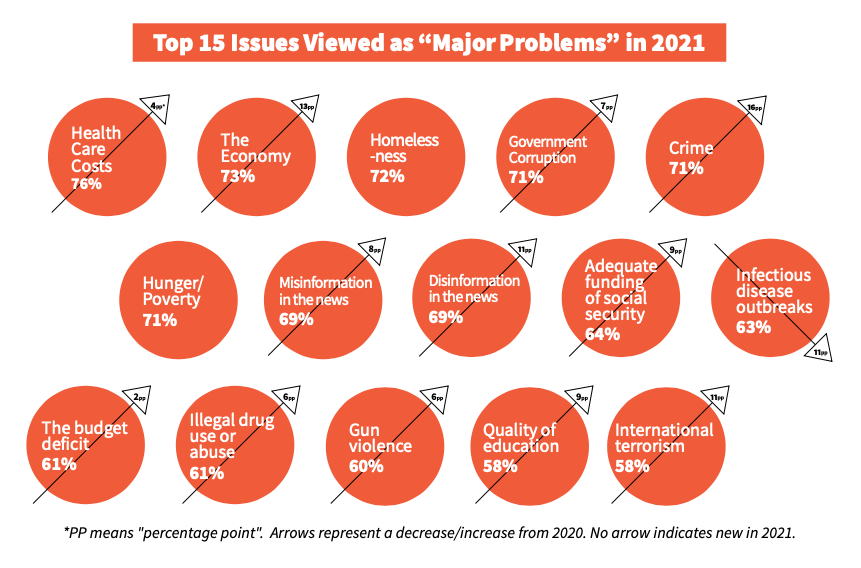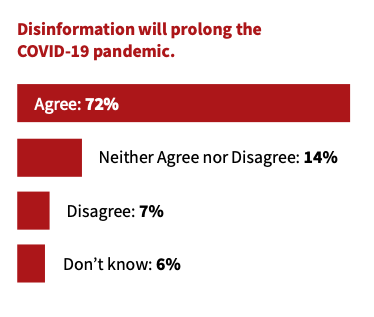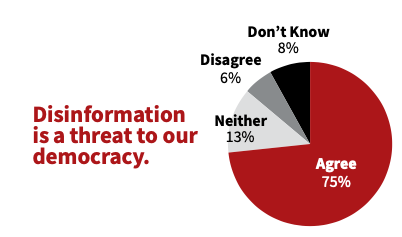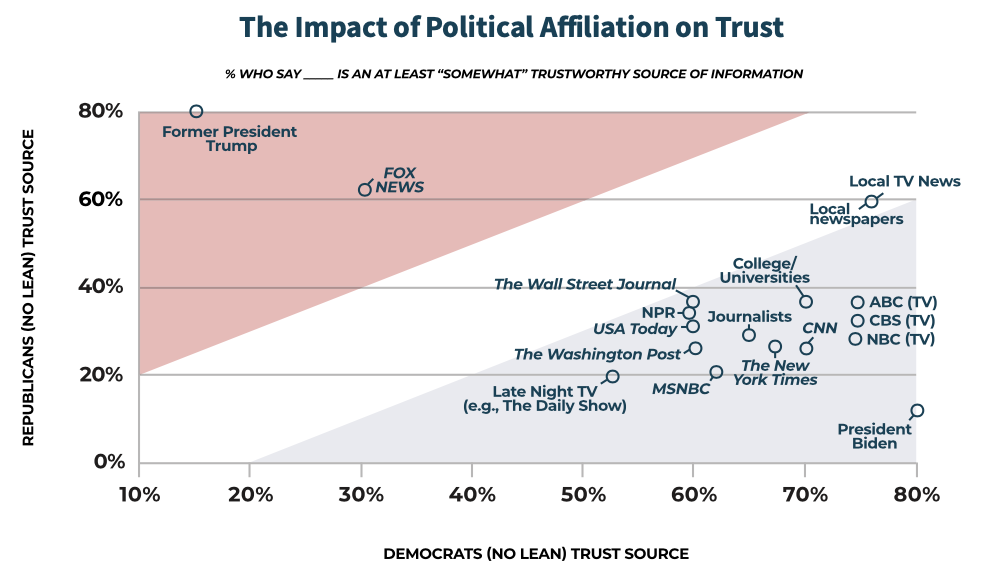Download the Full Report (PDF): 2022 IPR Disinformation in Society Report
Download the Press Release: 2022 IPR Disinformation in Society Report Press Release
Download Social Graphics: Graphic 1, Graphic 2, Graphic 3, Graphic 4, Graphic 5
Special thanks to our sponsors:

Introduction
Nearly three-quarters of Americans on both sides of the political aisle believe disinformation, or deliberately false or misleading information, will prolong the COVID-19 pandemic, according to the third annual Institute for Public Relations Disinformation in Society Report. The survey of 2,200 Americans conducted Nov. 10-14, 2021, by Morning Consult explored the prevalence and effects of disinformation, source trustworthiness, and the sources responsible for spreading and combatting disinformation.
Some of the key findings include:
Both Republicans and Democrats believe disinformation is a major problem in society: More than two-thirds of Americans on both sides of the political aisle believe disinformation is a major problem in society, a significant jump from 63% in 2020 to 69% this year. Disinformation was perceived to be a bigger problem than infectious disease outbreaks, terrorism, and climate change.

Disinformation will prolong the COVID-19 pandemic: Seventy-two percent of respondents agreed that disinformation will prolong COVID-19, and nearly that same percentage (73%) said that a lot of disinformation exists about the COVID-19 vaccination.

Disinformation has a negative impact on society and well-being: Seventy-one percent said disinformation increases the polarization of political parties, while 63% said it infringes on human rights. More than half of the respondents (52%) said encountering disinformation makes them feel anxious or stressed.

While Republicans and Democrats differed on their trust in media sources, local news brought them together: Mainstream media outlets saw starkly different perceptions of trustworthiness based on political affiliation by as much as 40 percentage points. Both Republicans and Democrats agree local sources are trustworthy, specifically local broadcast news (64%) and local newspapers (63%).

Family and friends were the most trusted sources, while politicians and Facebook were blamed most often for spreading disinformation: Nearly three-quarters of respondents said family (79%) and friends (74%) were the most trusted sources of information. Respondents said politicians (77%) and Facebook (72%) were most responsible for spreading disinformation.
Significant gaps exist between who should be most responsible for combatting disinformation and their performance: Sixty-seven percent said President Biden should be “very responsible” for combatting disinformation, but only 21% said he was doing “very well” actually doing so. Similar gaps were found with those entities who scored highest in responsibility for combatting disinformation, including the U.S. government (66% vs. 14%), Congress (63% vs. 9%), journalists (58% vs. 9%), and federal agencies such as the Centers for Disease Control and Prevention (CDC) (60% vs. 12%). Fifty-five percent continue to find Former President Donald Trump to be “very responsible” for combatting disinformation, but only 22% stated he was doing “very well” in combatting it.
![]()
About the Institute for Public Relations
Founded in 1956, the Institute for Public Relations is an independent, nonprofit foundation dedicated to the science beneath the art of public relations™. IPR creates, curates, and promotes research and initiatives that empower professionals with actionable insights and intelligence they can put to immediate use. IPR predicts and analyzes global factors transforming the profession and amplifies and engages the profession globally through thought leadership and programming. All research is available free at www.instituteforpr.org and provides the basis for IPR’s professional conferences and events.
Media Contact:
Brittany Higginbotham
Communications Associate
brittany@instituteforpr.org
352-615-8211



